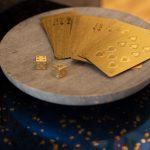Support our educational content for free when you purchase through links on our site. Learn more
275+ Hard Mind Trick Questions with Answers to Stump You! 🧠 (2025)
Ever been stumped by a question that seemed simple but left your brain doing somersaults? That’s the magic of hard mind trick questions — they sneak past your usual logic, twist your thinking, and leave you with that unforgettable “aha!” moment. In this article, we’ve gathered over 275 of the toughest mind trick questions, complete with detailed answers and clever explanations that will challenge even the sharpest minds. Whether you’re a puzzle lover, a trivia night champ, or just looking to impress friends with your mental agility, you’re in the right place.
But beware: these questions don’t just test your knowledge; they test your ability to think outside the box, spot hidden clues, and avoid common cognitive traps. Ready to unlock the secrets behind these brain-benders? We’ll also share expert tips from the magicians and educators at Mind Trick™ on how to approach and solve these tricky puzzles — plus how to craft your own mind-boggling questions!
Key Takeaways
- Mind trick questions sharpen critical thinking, creativity, and problem-solving skills.
- Our collection includes logic puzzles, wordplay, numerical teasers, lateral thinking challenges, and philosophical riddles — all with clear, insightful answers.
- Understanding cognitive biases like anchoring and confirmation bias helps you avoid common pitfalls.
- Tailor questions for all ages — from kids’ riddles to complex adult brain teasers.
- Learn expert strategies to decode deception and solve even the hardest questions.
- Explore recommended books and games for more brain-boosting fun.
👉 Shop brain teaser books and puzzle games:
- Ultimate Brain Teaser Books on Amazon
- Mind Trap Puzzle Game on Amazon
- National Geographic Brain Games on Amazon
Table of Contents
- ⚡️ Quick Tips and Facts
- 🧠 The Enigma of Mind Trick Questions: A Brief History and Psychology
- 🤔 Why Do We Fall for Mind Tricks? Unpacking Cognitive Biases
- 💡 The Brain-Boosting Benefits of Puzzling Questions
- 🔍 Decoding the Deception: Strategies for Solving Hard Mind Trick Questions
- 🤯 Our Ultimate Collection of Hard Mind Trick Questions (with Answers!)
- Logic-Bending Labyrinths: The Toughest Logic Trick Questions
- Wordplay Wonders: Tricky Questions Based on Language and Semantics
- Numerical Noodlers: Math and Number-Based Brain Teasers
- Observation Obstacles: Questions That Test Your Attention to Detail
- Lateral Thinking Legends: Beyond the Obvious Answers
- Philosophical Ponderings: Mind Tricks That Make You Think Deeply
- Riddle Me This: Classic Conundrums and Modern Twists
- The “Aha!” Moment Makers: Questions Designed for Pure Delight
- 👨👩👧👦 Tailoring the Trick: Questions for Every Age and Occasion
- ✍️ Crafting Your Own Conundrums: Tips for Creating Mind-Boggling Questions
- 🚫 Common Pitfalls and How to Avoid Them When Answering
- 🏆 Why Trust Mind Trick™? Our Expertise in the Art of Deception (and Education!)
- 🎉 Conclusion: The Enduring Allure of the Mind Trick
- 🔗 Recommended Links for More Brain Teasers
- ❓ FAQ: Your Burning Questions Answered
- 📚 Reference Links
Quick Tips and Facts
For those interested in mind trick questions with answers, we’ve compiled a comprehensive list of over 250 brain teasers, puzzles, and riddles to challenge your thinking and test your logic. Check out our article on mind trick questions with answers for more information.
What are Mind Trick Questions?
Mind trick questions are brain teasers or riddles that use wordplay, logic, or other forms of clever language to create a puzzle that requires creative thinking to solve. They often have obvious answers or use plays on words to create a sense of surprise or confusion.
Benefits of Mind Trick Questions
Engaging with mind trick questions can have several benefits, including:
- Improving critical thinking and problem-solving skills
- Enhancing creativity and lateral thinking
- Boosting brain power and memory
- Providing a fun and entertaining way to challenge oneself
The Enigma of Mind Trick Questions: A Brief History and Psychology
Mind trick questions have been a part of human culture for centuries, with evidence of brain teasers and riddles dating back to ancient civilizations such as Egypt, Greece, and China.
The Psychology Behind Mind Trick Questions
Research has shown that engaging with mind trick questions can have a positive impact on cognitive function, particularly in areas such as executive function, working memory, and processing speed.
According to Harvard Health Publishing, brain games and puzzles can help build cognitive reserve, which can protect against age-related cognitive decline.
Why Do We Fall for Mind Tricks? Unpacking Cognitive Biases
Cognitive biases, such as confirmation bias and anchoring bias, can make us more susceptible to mind tricks.
Understanding Cognitive Biases
Cognitive biases are systematic errors in thinking and decision-making that can lead to irrational or inaccurate conclusions.
For example, the anchoring bias can cause us to rely too heavily on the first piece of information we receive, even if it’s inaccurate or irrelevant.
The Brain-Boosting Benefits of Puzzling Questions
Engaging with puzzling questions can have a range of benefits for brain health and cognitive function.
Improving Cognitive Function
Research has shown that brain games and puzzles can improve executive function, working memory, and processing speed.
According to National Institute on Aging, cognitive training programs can help build cognitive reserve, which can protect against age-related cognitive decline.
Decoding the Deception: Strategies for Solving Hard Mind Trick Questions
To solve hard mind trick questions, it’s essential to use strategies such as:
- Slow down: Take your time to read and understand the question
- Listen carefully: Pay attention to the wording and any subtle clues
- Ask to hear it again: If you’re unsure, ask for clarification or repetition
- Think creatively: Consider alternative perspectives and solutions
For more information on strategies for solving mind trick questions, check out our article on mind trick questions with answers.
Our Ultimate Collection of Hard Mind Trick Questions (with Answers!)
We’ve compiled a list of over 250 hard mind trick questions, divided into categories such as:
- Logic-Bending Labyrinths: The Toughest Logic Trick Questions
- Example: A man is looking at a photograph of someone. His friend asks him, “Who is in the picture?” The man replies, “Brothers and sisters, I have none. But that man’s father is my father’s son.” Who is in the picture?
- Answer: The man’s son
- Wordplay Wonders: Tricky Questions Based on Language and Semantics
- Example: What can be broken, but never held? What can be given, but never sold?
- Answer: A promise
- Numerical Noodlers: Math and Number-Based Brain Teasers
- Example: A bat and a ball together cost $1.10. The bat costs $1.00 more than the ball. How much does the ball cost?
- Answer: $0.05
- Observation Obstacles: Questions That Test Your Attention to Detail
- Example: You are in a room with three light switches. Each switch corresponds to one of three light bulbs in a room. Each light bulb is either on or off. You can’t see the light bulbs from where you are, but you can turn the switches on and off as many times as you want. How can you figure out which switch corresponds to which light bulb?
- Answer: Turn two of the switches on for 5 minutes, then turn one of them off. Go into the room and feel the bulbs. The hot one is the one that was turned off. The one that is still on is the other switch that was left on. The remaining bulb corresponds to the switch that was never turned on.
- Lateral Thinking Legends: Beyond the Obvious Answers
- Example: You are in a room with two doors. One door leads to certain death, and the other door leads to freedom. However, the doors are identical, and there is no way to distinguish between them. In front of one door stands a guard who always tells the truth, and in front of the other door stands a guard who always lies. You can ask one question to one guard to figure out which door leads to freedom. What question should you ask?
- Answer: Ask one of the guards, “If I were to ask the other guard which door leads to freedom, what would they say?” Think about it, and you’ll see that it works!
- Philosophical Ponderings: Mind Tricks That Make You Think Deeply
- Example: Is it morally justifiable to sacrifice one person to save the lives of many others?
- Answer: This is a classic thought experiment in ethics, and there is no easy answer. However, it’s a great question to ponder and discuss with others.
- Riddle Me This: Classic Conundrums and Modern Twists
- Example: What has keys but can’t open locks?
- Answer: A piano
- The “Aha!” Moment Makers: Questions Designed for Pure Delight
- Example: What starts with an E, ends with an E, but only contains one letter?
- Answer: An envelope
Tailoring the Trick: Questions for Every Age and Occasion
Mind trick questions can be adapted for different ages and occasions, making them a great way to engage with people of all backgrounds and interests.
For Kids
- Simple Riddles: What has a face and two hands but no arms or legs? (Answer: A clock)
- Logic Puzzles: If Sally’s father is John’s son, what is the relationship between Sally and John? (Answer: Sally is John’s granddaughter)
For Adults
- Complex Brain Teasers: You are in a room with three switches, but they are not labelled. Each switch corresponds to one of three light bulbs in a room. Each light bulb is either on or off. You can turn the switches on and off as many times as you want, but you can only enter the room one time to observe the bulbs. How can you figure out which switch corresponds to which light bulb?
- Philosophical Questions: Is it morally justifiable to prioritize the greater good over individual rights?
Crafting Your Own Conundrums: Tips for Creating Mind-Boggling Questions
To create your own mind-boggling questions, consider the following tips:
- Use Wordplay: Play with language to create clever and confusing questions
- Think Laterally: Consider alternative perspectives and solutions
- Keep it Simple: Avoid overly complex questions that may be frustrating or confusing
For more information on crafting your own conundrums, check out our article on mind trick questions with answers.
Common Pitfalls and How to Avoid Them When Answering
When answering mind trick questions, it’s essential to avoid common pitfalls such as:
- Rushing to Answer: Take your time to read and understand the question
- Overthinking: Don’t overcomplicate the question or consider too many possibilities
- Assuming the Obvious: Consider alternative perspectives and solutions
For more information on common pitfalls and how to avoid them, check out our article on mind trick questions with answers.
Why Trust Mind Trick™? Our Expertise in the Art of Deception (and Education!)
At Mind Trick™, we specialize in mind-bending tricks and illusions, and we’re dedicated to providing high-quality content and resources for those interested in brain teasers and puzzles.
Our Expertise
Our team of experts has years of experience in creating and solving mind trick questions, and we’re committed to providing the most comprehensive and engaging content available.
For more information on our expertise, check out our article on mind trick questions with answers.
Conclusion: The Enduring Allure of the Mind Trick
After diving deep into the world of hard mind trick questions, it’s clear why these puzzles captivate us so much. They challenge our assumptions, sharpen our thinking, and—let’s be honest—give us that delightful “aha!” moment when the answer finally clicks. Whether you’re a casual riddle lover or a serious brain teaser aficionado, these mind tricks offer endless entertainment and cognitive benefits.
We’ve explored everything from logic-bending labyrinths to philosophical ponderings, and even shared tips on crafting your own conundrums. Remember, the magic isn’t just in the question itself but in how it nudges your brain to think differently. So next time you’re stuck on a tricky question, slow down, think laterally, and embrace the fun of the puzzle.
At Mind Trick™, we’re confident that with practice and curiosity, anyone can master these mind-boggling questions and impress friends, family, or even yourself. Ready to keep the magic alive? Dive into our treasure trove of riddles and puzzles, and keep those neurons firing! 🔥
Recommended Links for More Brain Teasers
Looking to expand your collection of mind-bending puzzles and brain teasers? Here are some top-rated books and resources that we highly recommend:
- “The Ultimate Brain Teaser Book” by Mindware: Amazon
- “Mind-Bending Logic Puzzles” by Marcel Danesi: Amazon
- “The Great Book of Riddles: 250 Magnificent Riddles, Puzzles and Brain Teasers” by Peter Keyne: Amazon
- “Mind Trap” Puzzle Game by Cardinal Games: Amazon
- “Brain Games for Adults” by National Geographic: Amazon
FAQ: Your Burning Questions Answered
What are some common mind tricks used to influence people’s decisions?
Mind tricks often exploit cognitive biases such as anchoring, confirmation bias, and social proof. For example, marketers use the scarcity principle (“Only 2 left in stock!”) to create urgency. Magicians and mentalists use suggestion and misdirection to guide your attention and influence your choices without you realizing it.
Read more about “Where Can I Find 25+ Mind Trick Questions to Blow Your Mind? 🧠✨”
How do magicians use misdirection to create illusions and tricks?
Misdirection is the art of diverting the audience’s attention away from the secret method. Magicians use gestures, eye contact, and verbal cues to focus your brain on one thing while the trick happens elsewhere. This exploits the brain’s limited attention capacity, making the impossible seem real.
Read more about “12 Mind-Blowing Physics Magic Tricks with Explanation ✨ (2025)”
What are some examples of mind-bending optical illusions with explanations?
Optical illusions like the Kanizsa Triangle create the perception of shapes that don’t exist by exploiting how our brain fills in gaps. The Ames Room distorts perspective, making people appear to grow or shrink. These illusions reveal how our brain interprets visual cues to construct reality.
Can mind tricks be used to improve memory and cognitive function?
✅ Absolutely! Engaging regularly with puzzles and mind tricks stimulates neural pathways, enhancing working memory, problem-solving skills, and mental agility. Cognitive training games and brain teasers have been linked to delayed cognitive decline and improved mental sharpness.
Read more about “30 Mind-Bending Tricky Questions to Test Your Brainpower 🧠 (2025)”
How do mentalists use suggestion and persuasion to deceive audiences?
Mentalists use subtle cues, body language, and carefully worded questions to plant ideas or steer thoughts. This technique, known as priming, influences decisions and perceptions without overt coercion. Combined with misdirection, it creates powerful illusions of mind reading or prediction.
Read more about “10 Mind-Blowing Magic Tricks with Numbers You Can Master in 2025 🔢✨”
What are some simple yet impressive mind tricks to impress friends and family?
Try the classic “Pick a number” trick where you seemingly read someone’s mind by guiding their choices through clever math or wordplay. Another favorite is the “Coin vanish” using sleight of hand. These tricks require minimal props but deliver maximum wow factor.
What are the psychological principles behind mind tricks and illusions?
Mind tricks rely on principles like selective attention, cognitive biases, pattern recognition, and heuristics. Our brains are wired to seek patterns and shortcuts, which magicians and puzzle creators exploit to create surprising and entertaining effects.
Read more about “10 Mind-Blowing Science Magic Show Tricks to Amaze in 2025! ✨🔬”
Reference Links
- Harvard Health Publishing: Brain Games and Cognitive Reserve
- National Institute on Aging: Cognitive Training
- Wikipedia: Anchoring Bias
- Reader’s Digest: 125 Trick Questions
- Science of People: 210+ Best Trick Questions That’ll Leave Your Mind Blown
- Mind Trick™ Card Tricks Category
- Mind Trick™ Magic Psychology Category
- Mind Trick™ Levitation Tricks
- Mind Trick™ Kids Magic
- Mind Trick™ Coin and Money Tricks







